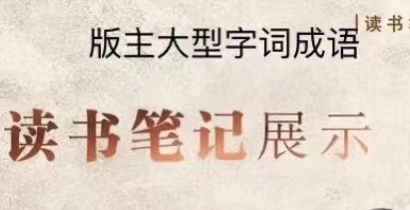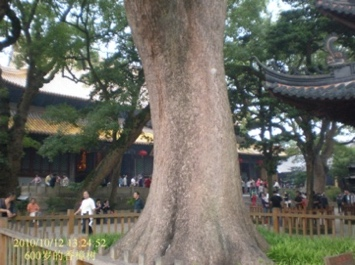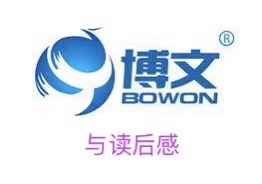As mentioned above, during the five and half years from entering the teaching position in September of 1972 to the restoration of the college entrance examination at the beginning in 1978, I lost interest in politics, however I had been caring about the change of the situation, believing that one day the order would be regained and everything would step and move on the regular track. After the collapse of Biao Lin clique, we experienced a period of criticizing the ultra-left line and some of the orders were restored in the school. But it was not long before stopping criticizing the left line and we were asked to criticize Biao Lin, Confucius and Duke of Zhou (the founder of Confucianism of Zhou Dynasty), and learn from Xiaojin Village, the model set up by Mao’s wife, who took the advantage of the Mazhenfu Event and used it as a pretext to criticize the restoration resurgence. As a result, the examination could not be held properly in the school. In 1975, Xiaoping Deng came to power and did the reorganization, but it was soon beaten by counter-attacking the right deviation counter-document wind. On September 9, 1976, Zedong Mao died and on October 6, the gang of four (Mao’s wife plus the three of Shanghai gang, Hongwen Wang, Chunqiao Zhang and Wenyuan Yao) were arrested. In 1977, Xiaoping Deng came to power again and personally grasped the education. I had such a feeling that something would happen to the college recruitment of students. In that period, both junior and senior middle school had two years of grades and I undertook a senior grade class, the class teacher, teaching the mix subject of Chinese and politics mentioned above. Before the graduation, in July of 1977, I analyze the situation in the class and forecast that changes would soon take place in the college recruitment system. Colleges recruited so-called worker-peasant-soldier students for several years, who must have two years of experience, not by examination, but by the recommendation of the basic-level organizations. Accordingly, the graduating high school students didn’t have any study enthusiasm and left school, loose and slack. They went to their production team and began to work in the fields. I asked them to review subjects studied in the school in their spare time and told them that it was probable for them to go to the college not after two years of laboring work. I asked several top students in my class to my home and both Meilan Zhang and I together analyzed the situation, urged and encouraged them to get ready, making them understand the truth: “The chance is partial to those who have made preparations.”
The situation developed more quickly than we thought. At the end of 1997 the notice about the restoration of college examination was issued and at the beginning of 1978 the candidates would take part in the examination. When I got the information, I immediately rode on my bike to the homes of my students who had the hope of entering the college, asking them to review the subjects of the entrance examination whole-heartedly. The time was pressing and it was not allowed to delay one minute. I remembered that I had visited 14 to 15 homes of the students in my class. In addition, I also told the news to some of the graduates of 1975 and 1976 I had taught, who had already worked at home for one or two years, and had been away from their books also for so long time, because they were sons and daughters of ordinary villagers and lost the hope of becoming college students. After my mobilization, they acted earlier than others.
The first entrance examination in 1978 did not have English paper, so I helped them review Chinese, politics, history and geography. Because of the lack of teaching order and proper tests in the school, the graduates in 1975, 1976 and 1977 learned little knowledge in the school, who lost confidence in the examination. They were especially frightened because the graduates before the Cultural Revolution were also allowed to attend the examination. Accordingly, most of them registered for medium technical or normal schools rather than colleges and universities. It was the first examination and the test papers for medium technical or normal schools, which, I estimated, could not be very difficult. I found the history and geography text books of the middle school of that time, and compiled a revision compendium. I asked the students to come to school and I would help them in my spare time. Furthermore, I also wrote an outline for the subject of politics according to the political situation, which was mainly about the so-called theory of the continuous revolution under the proletarian dictatorship by Mao and current events at home and abroad. The school didn’t have any arrangement, and I acted myself, vigorous and resolute.
The result of the first college entrance examination was made known and more than 10 of the 1977’s graduates of my class were enrolled and the other counterpart class had only three in the list. These sons and daughters of ordinary villagers could receive higher education by means of their own performance, not the interpersonal relationship, which exerted great influence upon the ideological concept of the people. The teaching work was soon valued and we teachers began to feel our importance and value. The students who would go to their technical or normal schools showed the deep affectionate kindness to us and came to see us before the registration or during the summer vacation. In their popular words, those who could go to the technical or normal school could get a hard notebook and they were very satisfied. What the hard notebook meant was that they could be supplied with grain by the government as us. In those years, everything was planned by the government and we teachers had a hard pamphlet to record how much grain we could buy every month, which was called by the students “hard notebook”.
In 1978 and 1979, the school began to pay attention to revision and preparations for the entrance examination, but a lot of graduates did not show interests in the Mapo Middle school that was founded not long ago and they went to Zhengji Middle School 10 kilometers away to insert in the senior grade classes to review. The county education bureau decided to carry on the compression and reorganization of the senior middle classes. The schools similar to the Mapo Middle School stopped enrolling the senior class students and were asked to centralize on running the junior classes. The junior classes enrolled in 1977 became three grades as those before the Cultural Revolution. A lot of students already studying in the senior grade one classes felt no hope of entering colleges after graduating asked to come back to the junior grade three classes, wanted to build the solid foundation and then entered the senior grade classes in the Zhengji Middle School. The first junior classes of three years graduated in 1980 and were informed of English being tested. Because the English teaching level in the whole county was far from the balance, the authority decided to calculate only 50% of the English results into the total scores, asking all the junior middle schools to come to realize the importance of this subject. The new leader of the Mapo Middle School held the view that our school should bring the English subject into full play and asked us to undertake the English teaching task of the junior grade three, with the week periods increasing. We had a teaching history of almost eight years and our teaching level would be tested by the county-wide examination, accordingly we did not dare to neglect. Headmaster Chuanwu Yang was transferred to another school and a new one, Bingchen Cui, came, whose individuality was different from Yang’s. He was an enthusiastic person and anxious to win the teaching achievements, so he regarded Grade Three teaching and high school entrance examination as very important. Although only 50 % of the English scores would be counted into the total score, he paid great attention to it and talked to us, suggesting that Yang was a coward and did not dare to give commendation to those who had achieved the honor for the school. He said he would not only praise the advanced teachers but also let them join the Party. It was not enough for the leader to know who was outstanding in his or her mind. “Praising those who had done a lot of work and won the honor for the school meant offending those who were lazy or incompetent.” he added. He expressed that he was not afraid of offending those lazy and incompetent and wanted to let the healthy tendency prevail in the school. We showed our attitude that we didn’t keep in mind certain villain's words and deeds. No matter how other people looked upon us and no matter what kind of appraisals we got we should be responsible for our students and conscientious about the teaching profession, working hard for our own cause.
From the autumn of 1979 to the end of the second semester in July of 1980, we tried our best in every way to teach the junior class students of the third year. We didn’t organize the group interesting in English and paid attention to the whole class and esp. to those who were ranked in the middle of the class, encouraging and improving them. We held the view that the improvement of this large part of the class would cause the major impact on the whole school in the entrance examination. It was not enough to cultivate and train only a few excellent in English. Bingchen Cui didn’t pay much attention to the few senior classes and assigned backbone teachers to the junior classes of year three, trying to succeed in the entrance examination. Because of the good coordination of all teachers of year three, the result of the entrance examination made us very excited. The other junior middle schools in the northwest part of Tonshan County, such as Heqiao, Huangji, Liuxin and Liuji were not as good as ours. The number of the students of our school enrolled into the Zhengji Middle School was the highest. The English scores plaid an important role. Headmaster Bingchen Cui was very delighted. He was not very happy as well, because it was in that year that the Education Bureau of Tongshan County decided to concentrate efforts to run the key middle school and to transfer us pair and another Chinese teacher to the provincial key middle school, Zhengji Middle School. It made us happy to have the opportunity to teach in the key senior middle school, but Bingchen Cui wanted to retain us from heart. He went to the commune office to ask the local leaders to persuade the education bureau to let us pair continue to work in Mapo. The head of the Mapo Commune knew the limitations, telling Cui that the decision of the education bureau was agreed by the County Party Committee, and held the view to save futile efforts. Cui was asked to deliver a human sentiment and let us go.
Cui felt that we had won a lot of honor for the Mapo Middle School and he would do his best to express the school’s affirmation of our work and gratitude to us. At that time material reward was unpopular and he decided to resist the opposition and encourage other Party branch members to add to courage to let me join the Party. The Mapo Middle School was founded in 1970 and during the period of 10 years the Party branch did not absorb any new member. This time Cui was determined to let two join the Party, the other one being accountant of the school, who was an old ox and pulled teaching materials from Xuzhou to Mapo, covering 35 kilometers with a cart, in order to save money for the school, moving every one of us. In September of 1980, I was already working in the Zhengji Middle School and was asked to come back to attend the Party branch meeting. Accordingly, I became a member of the Chinese Communist Party, which however could not interest me in politics, because almost all my energy had already been dedicated to English and would continue to do so.
Jan. 12, 2009 in Melbourne
Proofreading on Feb. 10, 2012
Uploading on Aug. 4 2023 in Xuzhou









